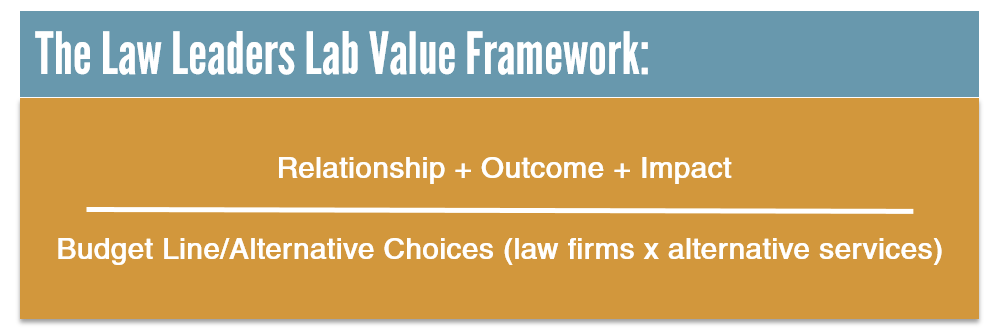by Debra Baker
In addition to comparing the value of one lawyer to another, buyers of legal services are also looking outside the traditional law firm to find ways to address legal challenges in cost effective ways.
Three alternatives to law firms include:
- – Legal technology service providers
- – Non-law firm business consultants
- – Hiring in-house counsel
Legal technologies are impacting the way companies of all sizes manage legal services. These technologies provide one of two benefits. They streamline legal business processes to create efficiencies. Or, they replace the need for legal counsel altogether.
Many companies frustrated with the inefficient way in which lawyers deliver their services bring the technology in house and hire outsourced service providers directly so they can reduce costs and duplication of efforts. For example, review platforms brought in-house can improve the speed and results of electronic document review. This is widespread practice among large business enterprises and because of the success of such initiatives medium-sized enterprises are starting to do the same.
In other cases, technology is increasing the prevalence of “do-it-yourself” legal services. Online services make it possible to create contracts and file corporate documents by answering a few simple questions. This is an increasingly widespread practice with small businesses.
This is evidenced by recent investments in legal services companies that have given up on trying to sell their legal technologies to lawyers and instead target consumers of legal services directly. Companies like LegalZoom, Avvo and Rocker Lawyer are entering the legal market through their technology and then attaching lawyers to them on the back end.
In the middle-market environment, we are starting to see legal technologies used in similar ways. For example, the General Counsel of a national healthcare network with operations throughout the 50 states says she used to hire counsel from a national firm to analyze the impact of certain laws or developments on her operations in different states. Now, she says, she accomplishes this same thing using a subscription legal database that can generate the same report for a fraction of the time and cost.
With the lines between business and the law increasingly blurred, law firms also face competition from other professional services advisors like CPAs, business advisors, HR consultants and even real estate brokers. Although they don’t necessarily compete head-to-head, they often provide lower cost alternatives to preventative law solutions or ancillary services that cut into the amount of work lawyers might otherwise be able to bill. These factors have contributed to changes in UK and Canadian laws involving partnerships between lawyers and non-lawyers.
Another impact on the competitive landscape is the in-house attorney. With the high-cost of legal services, lawyers are one of the few outsourced services providers that cost more than bringing a person on full time. Once a General Counsel is in place, the opportunities for outside counsel drop.
One person we interviewed was the first General Counsel hired by his organization. Prior to bringing a lawyer in house, the organization relied on a large multi-practice law firm that could provide “one-stop” shopping for legal services. A Relationship Partner at the firm managed the relationship and, although not necessarily cost effective, it made finding legal resources easy.
Once the organization made the decision to bring someone in house, however, they realized they could address their one-off legal needs in far less expensive ways. In essence, the role of Relationship Partner shifted to the General Counsel whose knowledge of the legal market opened up a wider variety of outside attorneys to choose from. In essence, the new General Counsel all but unseated the organization’s primary outside counsel.
The takeaway: Lawyers must look beyond their peers when it comes to developing a compelling value proposition for why clients should work with them. Among the factors they will need to address is what makes the work they do more valuable than:
- Free and low-cost legal information online
- Low-cost document creation services
- Automation technology to streamline routinized legal processes
- Low cost legal research services
- Ancillary non-legal services providers such as real estate brokers, human resources consultants, accountants and business advisors.
- Bringing an attorney in-house.
Law Leaders Lab is committed to helping lawyer rethinking the way lawyers create, deliver and communicate value to clients. We invite you to join the conversation and engage with the law firm leaders of tomorrow at www.lawleaderslab.com
